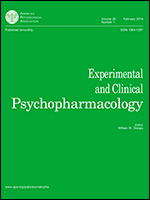 “Globally, chronic pain is a major therapeutic challenge and affects more than 15% of the population. As patients with painful terminal diseases may face unbearable pain, there is a need for more potent analgesics.
“Globally, chronic pain is a major therapeutic challenge and affects more than 15% of the population. As patients with painful terminal diseases may face unbearable pain, there is a need for more potent analgesics.
Although opioid-based therapeutic agents received attention to manage severe pain, their adverse drug effects and mortality rate associated with opioids overdose are the major concerns.
Evidences from clinical trials showed therapeutic benefits of cannabis, especially delta-9-tetrahydrocannabinol and cannabinoids reduced neuropathic pain intensity in various conditions. Also, there are reports on using combination cannabinoid therapies for chronic pain management.
The association of cannabis dependence and addiction has been discussed much and the reports mentioned that it can be comparatively lower than other substances such as nicotine and alcohol.
More countries have decided to legalise the medicinal use of cannabis and marijuana.
Healthcare professionals should keep themselves updated with the changing state of medical cannabis and its applications.”
https://www.ncbi.nlm.nih.gov/pubmed/31535218
https://link.springer.com/article/10.1007%2Fs00540-019-02680-y


 “Multiple sclerosis (MS) is a chronic and disabling disorder of the central nervous system (CNS) characterized by neuroinflammation leading to demyelination.
“Multiple sclerosis (MS) is a chronic and disabling disorder of the central nervous system (CNS) characterized by neuroinflammation leading to demyelination. “Treatment of spasticity poses a major challenge in amyotrophic lateral sclerosis (ALS) patient management.
“Treatment of spasticity poses a major challenge in amyotrophic lateral sclerosis (ALS) patient management.
 “Much of the initial reports for
“Much of the initial reports for  “The neurodegeneration, neuro-inflammation and mitochondrial dysfunction which occur by methamphetamine (METH) abuse or administration are serious and motivation therapeutic approaches for inhibition of these types of neurodegeneration. As we know, METH through Toll-like receptors (TLRs), specially type 4, and NF-κB signaling pathway causes neuro-inflammation and mitochondrial dysfunction.
“The neurodegeneration, neuro-inflammation and mitochondrial dysfunction which occur by methamphetamine (METH) abuse or administration are serious and motivation therapeutic approaches for inhibition of these types of neurodegeneration. As we know, METH through Toll-like receptors (TLRs), specially type 4, and NF-κB signaling pathway causes neuro-inflammation and mitochondrial dysfunction.
 “Medical and recreational cannabis use is increasing significantly, but its impacts on oral health remains unclear.
“Medical and recreational cannabis use is increasing significantly, but its impacts on oral health remains unclear.